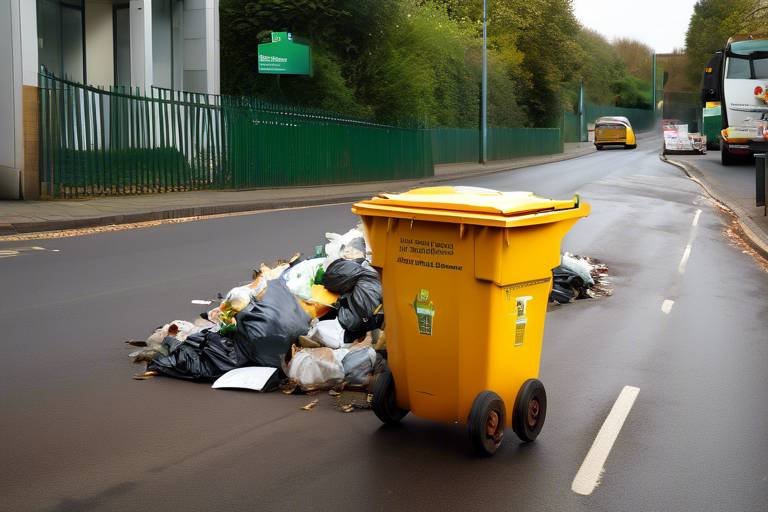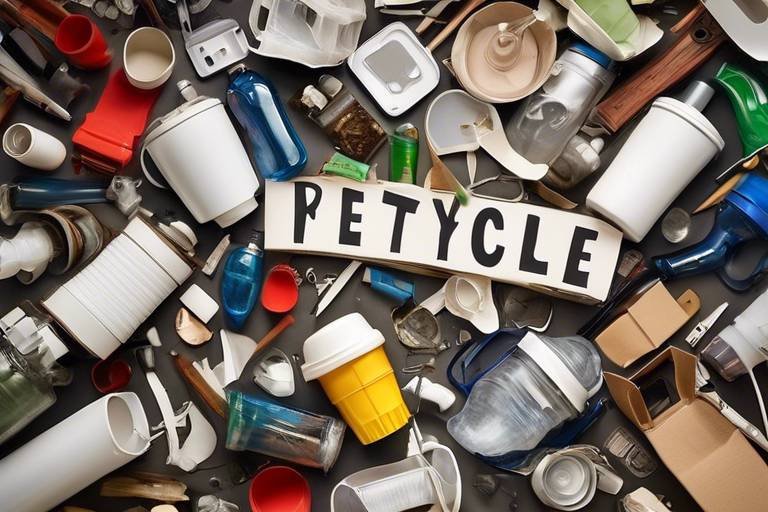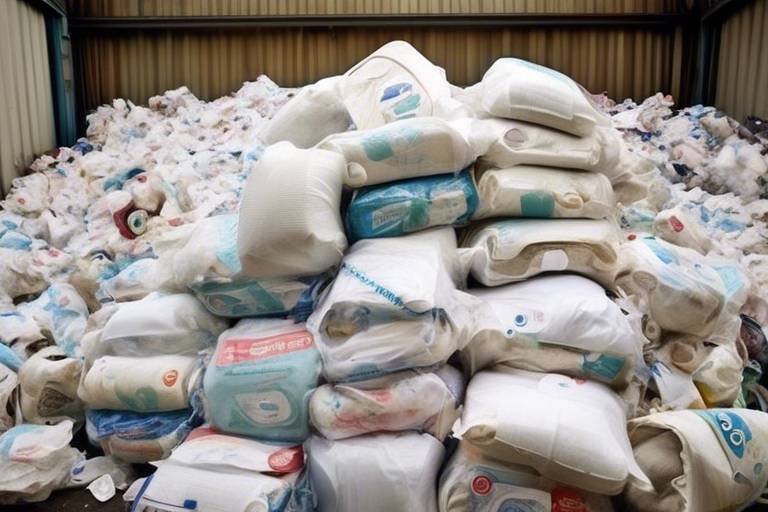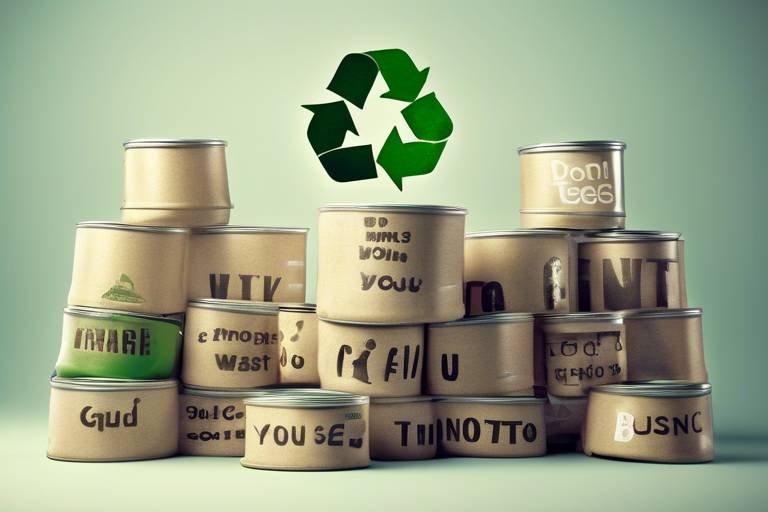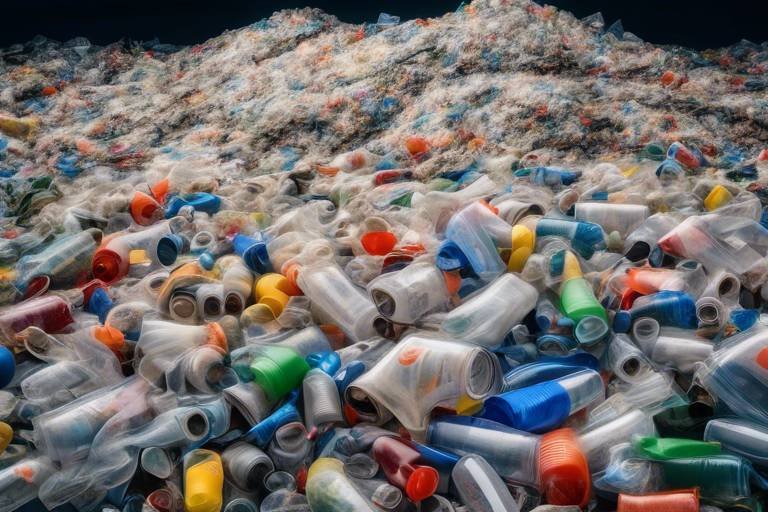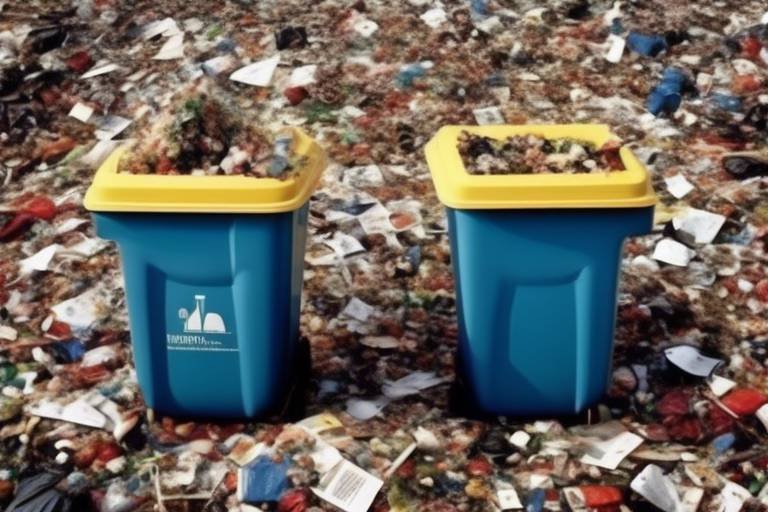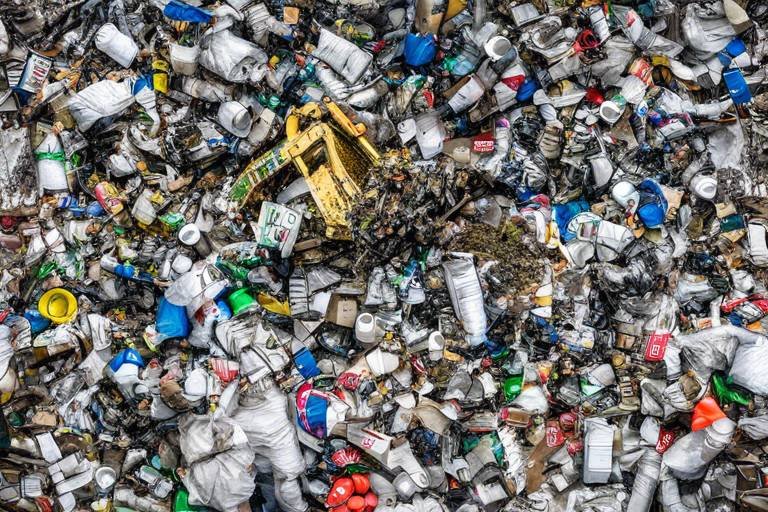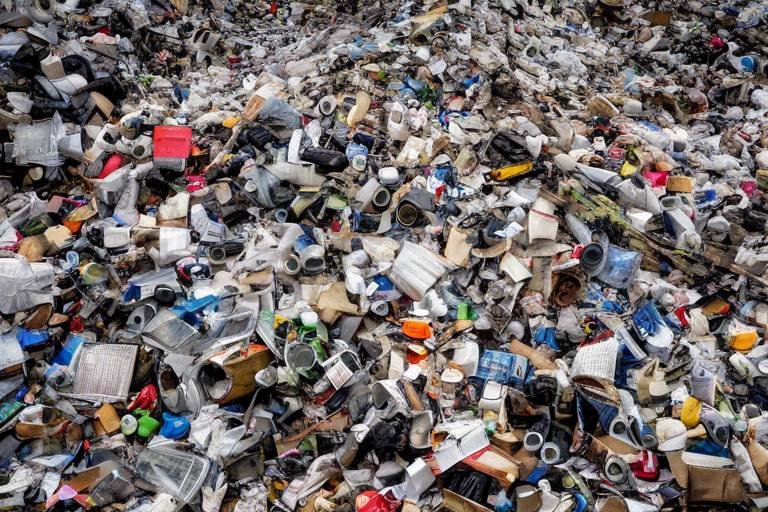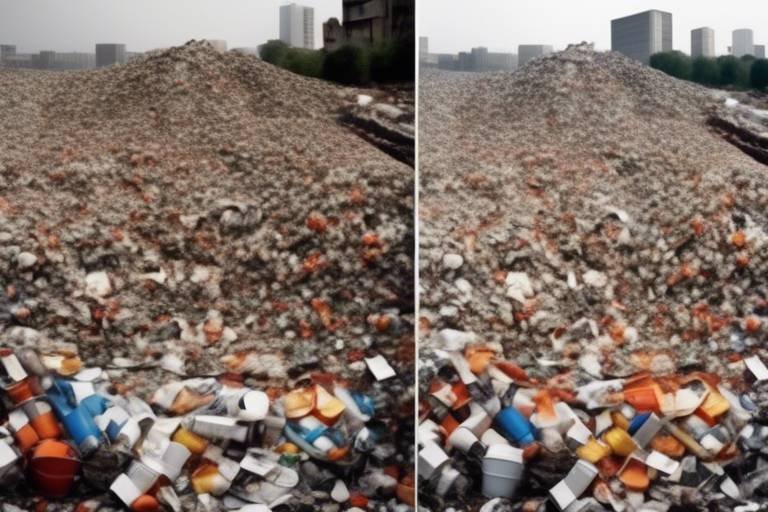What is the Importance of Waste Collection?
Waste collection is not just a mundane task; it is a fundamental aspect of our daily lives that significantly impacts our health, environment, and overall quality of life. Imagine living in a neighborhood where trash piles up, attracting pests and creating foul odors. It’s not just an eyesore; it’s a breeding ground for diseases. Effective waste collection ensures that our communities remain clean and hygienic, preventing the spread of illnesses and enhancing public health.
Moreover, the importance of waste collection extends beyond mere cleanliness. It plays a critical role in environmental protection. When waste is collected efficiently, it can be sorted and processed, allowing for recycling and composting. This not only reduces the amount of waste that ends up in landfills but also conserves valuable natural resources. Think of waste collection as the first line of defense in our battle against pollution and environmental degradation. By managing waste properly, we can significantly mitigate the negative impacts on our planet.
In addition to health and environmental benefits, effective waste collection has economic implications as well. Communities that invest in robust waste management systems often see an increase in property values and local business growth. A clean environment attracts visitors and potential residents, creating a vibrant community. Furthermore, waste collection creates jobs, from collection and sorting to recycling and waste treatment, contributing to the local economy.
To truly understand the significance of waste collection, we must also consider the community aspect. When residents are engaged in waste management practices, it fosters a sense of responsibility and ownership. Educational programs that promote awareness about waste reduction and proper disposal methods can empower individuals to take action. This collective effort can lead to innovative solutions tailored to the specific needs of the community, ultimately creating a more sustainable future.
In summary, waste collection is a vital service that underpins public health, environmental sustainability, and economic prosperity. It is not merely about removing waste; it is about creating a cleaner, healthier, and more responsible society. As we move forward, embracing effective waste management practices will be crucial in ensuring the well-being of our communities and the planet.

The Role of Waste Collection in Public Health
Effective waste collection is not just about keeping our streets clean; it is a fundamental pillar of public health. Imagine living in a neighborhood where garbage piles up on every corner, attracting pests and creating an unsightly environment. This scenario is not just unpleasant; it can lead to serious health risks. Waste collection minimizes exposure to hazardous materials, effectively reducing the likelihood of disease outbreaks. When waste is collected regularly, it decreases the chances of vector-borne diseases, such as those spread by rats, mosquitoes, and other pests that thrive in neglected trash.
In essence, waste collection acts as a shield, protecting communities from potential health hazards. The importance of proper waste disposal cannot be overstated. When waste is not managed correctly, it can become a breeding ground for bacteria and viruses, leading to illnesses that can spread rapidly within a population. For instance, consider the impact of a single overflowing trash bin in a public area. It can attract rodents and insects, which can carry diseases such as leptospirosis or West Nile virus. By ensuring regular waste collection, communities can significantly reduce these risks.
Moreover, effective waste management systems contribute to a cleaner living environment, which in turn promotes mental well-being. Studies have shown that clean surroundings can enhance mood and reduce stress levels among residents. When people feel good about their environment, they are more likely to engage positively within their community. This creates a ripple effect, fostering a sense of pride and responsibility towards maintaining cleanliness and health standards.
To illustrate the critical role of waste collection in public health, let’s look at a few key benefits:
- Prevention of Disease Outbreaks: Regular waste collection helps eliminate potential breeding grounds for pathogens.
- Reduction of Pests: A clean environment discourages pests that can carry diseases.
- Improved Quality of Life: Clean neighborhoods contribute to better mental and physical health for residents.
In conclusion, the role of waste collection in public health is profound and multifaceted. It goes beyond simple aesthetics; it is about ensuring the well-being of communities. By investing in effective waste management systems, we can safeguard our health, create cleaner environments, and foster a sense of community responsibility. The next time you see a waste collection truck making its rounds, remember that it is not just picking up trash; it is actively contributing to the health and safety of your neighborhood.
Q1: How does waste collection prevent disease?
A1: Regular waste collection eliminates breeding grounds for pests and reduces exposure to hazardous materials that can cause diseases.
Q2: What are vector-borne diseases?
A2: Vector-borne diseases are illnesses transmitted by vectors like mosquitoes and rodents, often thriving in improperly managed waste.
Q3: Why is community involvement important in waste management?
A3: Community involvement fosters a sense of responsibility and ownership, leading to more effective and tailored waste management strategies.

Environmental Impact of Waste Collection
This article explores the critical role of waste collection in maintaining public health, protecting the environment, and promoting sustainable practices. It highlights various aspects and benefits of effective waste management systems.
Effective waste collection is essential in preventing disease outbreaks and maintaining clean living environments. It minimizes exposure to hazardous materials and reduces the risk of vector-borne diseases, ensuring community well-being.
Waste collection plays a pivotal role in environmental protection by reducing pollution and conserving natural resources. When waste is collected efficiently, it helps to mitigate the negative impacts associated with waste disposal. Imagine a world where trash is strewn about, creating unsightly landscapes and breeding grounds for pests. Proper waste management not only keeps our surroundings clean but also ensures that we are not overburdening our planet with excess waste.
One of the most significant environmental benefits of effective waste collection is its role in reducing landfill overflow. When waste collection systems are in place, they help to manage the volume of waste directed to landfills. This is crucial because overflowing landfills can lead to serious environmental degradation, polluting the air, soil, and water. By diverting waste from landfills, we can significantly lessen our ecological footprint and promote a healthier planet.
Proper waste collection helps manage the volume of waste directed to landfills, preventing overflow and minimizing environmental degradation. As waste is sorted and processed, communities can adopt responsible disposal practices. This not only reduces landfill reliance but also encourages the development of alternative waste treatment methods, such as composting and energy recovery. These methods can transform waste into valuable resources, showcasing the potential of a circular economy.
By efficiently collecting waste, communities can reduce the risk of landfill pollution, which can leach harmful chemicals into the soil and groundwater. The consequences of such pollution can be catastrophic, affecting local ecosystems and posing health risks to nearby residents. Safeguarding our ecosystems and public health is crucial, and effective waste collection is a vital step in that direction.
Waste collection systems that incorporate recycling programs help divert materials from landfills, promoting sustainable practices. For instance, when communities actively engage in recycling, they not only reduce the amount of waste sent to landfills but also conserve valuable resources and energy. These initiatives encourage community participation and raise awareness about the importance of recycling. Imagine the impact if everyone recycled just a little more—less waste, cleaner environments, and a brighter future!
Investing in effective waste collection services can lead to significant economic advantages. It creates job opportunities, supports local businesses, and enhances property values through improved community aesthetics and hygiene.
Raising awareness about the importance of waste collection is vital for fostering community involvement. Educational programs can encourage residents to participate in waste reduction and proper disposal practices, creating a more sustainable future.
Community engagement in waste collection initiatives fosters a sense of responsibility and ownership. By involving residents in decision-making processes, communities can develop tailored waste management strategies that meet their specific needs.
Implementing educational programs on waste management can significantly enhance community understanding. These initiatives can inform residents about best practices, recycling guidelines, and the environmental impacts of improper waste disposal.
- Why is waste collection important for public health? Effective waste collection prevents disease outbreaks and reduces exposure to hazardous materials.
- How does waste collection impact the environment? It reduces pollution, conserves resources, and mitigates landfill overflow.
- What can communities do to improve waste collection? Communities can engage in recycling initiatives and educational programs to raise awareness.
- What are the economic benefits of effective waste management? It creates jobs, supports local businesses, and enhances property values.

Reducing Landfill Overflow
When it comes to waste management, one of the most pressing challenges we face is the overwhelming amount of waste that ends up in landfills. is not just a noble goal; it's a necessity for the health of our planet and communities. Picture a landfill: a vast, stinking mountain of trash that seems to grow taller by the day. Now imagine if we could shrink that mountain down to a more manageable hill. That’s the power of effective waste collection!
Proper waste collection plays a crucial role in managing the volume of garbage that is directed to these landfills. By implementing systematic waste collection services, communities can significantly decrease the amount of waste that ends up in these overflowing sites. It’s like having a well-organized closet; when everything is sorted and put in its right place, there's much less clutter. Similarly, when waste is collected efficiently, it allows for better sorting, recycling, and composting opportunities.
Moreover, reducing landfill overflow isn't merely about collecting trash; it’s about encouraging responsible waste disposal practices among residents. When communities are educated about the importance of separating recyclables from general waste, they actively contribute to minimizing the amount of trash sent to landfills. For instance, if every household could divert just a small percentage of their waste into recycling or composting, the cumulative effect would be monumental. Imagine if your neighbor started composting their kitchen scraps — not only would they reduce their waste footprint, but they might inspire you to do the same!
To illustrate this point further, consider the following table that highlights the potential impact of effective waste collection strategies on landfill overflow:
| Strategy | Potential Waste Reduction (%) | Environmental Benefit |
|---|---|---|
| Recycling Programs | 30% | Reduces the need for new materials |
| Composting Initiatives | 25% | Enhances soil health and reduces methane emissions |
| Community Clean-Up Events | 15% | Promotes local pride and environmental stewardship |
As you can see, implementing these strategies can lead to a significant reduction in landfill overflow. It’s a team effort—everyone has a part to play! By fostering a culture of sustainability within the community, we can create a ripple effect that encourages more people to take action. So, the next time you throw something away, ask yourself: Can this be recycled or composted instead? This simple question can lead to monumental changes in how we manage our waste.
In conclusion, reducing landfill overflow is not just about the logistics of waste collection; it’s about changing mindsets and behaviors. It’s about creating a community that values sustainability and takes pride in its environment. Together, we can work towards a cleaner, greener future, one piece of waste at a time.
- Why is reducing landfill overflow important? It helps protect the environment, reduces pollution, and conserves natural resources.
- How can I contribute to reducing landfill waste? You can recycle, compost, and participate in local clean-up initiatives.
- What are some effective waste collection strategies? Implementing recycling programs, composting initiatives, and community engagement activities.

Landfill Pollution Prevention
Landfill pollution is a pressing issue that can have devastating effects on our environment and public health. When waste is improperly managed, it can lead to the leaching of harmful chemicals into the soil and groundwater, creating a toxic brew that endangers ecosystems and human communities alike. This is where effective waste collection comes into play, acting as the first line of defense against pollution. By ensuring that waste is collected efficiently and disposed of properly, communities can significantly reduce the risk of landfill pollution.
Think of waste collection as a safety net for our planet. Just like a net catches falling objects, effective waste management captures waste before it has a chance to seep into the earth. When waste is collected regularly and disposed of in a controlled manner, it minimizes the chances of hazardous materials being left to fester in landfills. This proactive approach not only protects our soil and water but also helps maintain the integrity of our natural habitats.
Moreover, communities that prioritize waste collection can implement preventive measures to further reduce the risk of pollution. Here are some strategies that can be employed:
- Regular Monitoring: Keeping an eye on landfill sites to identify potential leaks or pollution sources can help catch issues before they escalate.
- Proper Sorting: Encouraging residents to separate recyclable and hazardous materials from regular waste ensures that harmful substances are not buried in landfills.
- Public Education: Informing the community about the dangers of landfill pollution and the importance of proper waste disposal can lead to more responsible behaviors.
It's essential to recognize that landfill pollution prevention is not just the responsibility of waste management companies; it requires a collective effort from the entire community. Every individual plays a crucial role in this process. By adopting responsible waste disposal practices and participating in local recycling programs, residents can help mitigate the risks associated with landfills. Remember, every small action counts!
In conclusion, landfill pollution prevention is a vital aspect of effective waste management. By prioritizing efficient waste collection and fostering community involvement, we can protect our environment and public health. It's time to take action and ensure that our landfills do not become sources of pollution, but rather, a part of a sustainable waste management system that benefits everyone.
- What is landfill pollution? Landfill pollution occurs when hazardous materials leach out of waste and contaminate the soil and groundwater, posing risks to human health and the environment.
- How can I help prevent landfill pollution? You can help by properly sorting your waste, participating in recycling programs, and staying informed about local waste management practices.
- Why is waste collection important? Waste collection is crucial for maintaining public health, protecting the environment, and promoting sustainable practices within the community.

Promoting Recycling Initiatives
In today's world, where our resources are dwindling and environmental concerns are escalating, promoting recycling initiatives has become more crucial than ever. Waste collection systems that incorporate recycling programs not only help divert materials from landfills but also foster a culture of sustainability within communities. Imagine a world where discarded materials are transformed into valuable resources rather than polluting our planet. This is the vision that effective recycling initiatives aim to achieve.
The beauty of recycling lies in its simplicity and effectiveness. By encouraging residents to segregate their waste and participate in recycling programs, communities can significantly reduce the amount of waste that ends up in landfills. For instance, when individuals are educated on how to properly recycle items such as plastics, paper, and metals, they become active participants in the fight against environmental degradation. This not only mitigates landfill overflow but also conserves natural resources, as recycling reduces the need for virgin materials.
Moreover, recycling initiatives can serve as a platform for community engagement. When local governments and organizations actively promote recycling, they create opportunities for residents to come together, share ideas, and collaborate on sustainability projects. For example, community clean-up events that include recycling drives can foster a sense of ownership and pride among residents. This collective effort not only beautifies neighborhoods but also instills a deeper understanding of the importance of waste management.
To further enhance the effectiveness of recycling initiatives, educational programs play a vital role. These programs can inform residents about:
- The types of materials that can be recycled
- How to properly prepare items for recycling
- The environmental benefits of recycling
By providing clear and accessible information, communities can empower individuals to make informed decisions about their waste disposal practices. This knowledge leads to increased participation in recycling programs, ultimately resulting in a cleaner and healthier environment for everyone.
Additionally, local businesses can also get involved in promoting recycling initiatives. By partnering with waste management services, they can implement recycling programs in their operations, encouraging customers to participate as well. This not only enhances the business's reputation but also contributes to the overall sustainability goals of the community.
In conclusion, promoting recycling initiatives is not just about managing waste; it's about creating a culture of sustainability that benefits both the environment and the community. Through effective waste collection systems, educational programs, and community engagement, we can pave the way for a greener future. Let's take the first step together—because every little bit counts!
1. Why is recycling important?
Recycling is crucial for reducing waste in landfills, conserving natural resources, and minimizing pollution. It helps create a sustainable environment for future generations.
2. What materials can be recycled?
Commonly recycled materials include paper, cardboard, glass, plastics, and metals. Always check local guidelines for specific recycling rules in your area.
3. How can I participate in recycling initiatives?
You can participate by segregating your waste, following local recycling guidelines, and engaging in community recycling programs or events.
4. What happens to recycled materials?
Recycled materials are processed and converted into new products, reducing the need for virgin resources and minimizing environmental impact.

Economic Benefits of Waste Collection
When we talk about waste collection, most people think of it as just a necessary service to keep our streets clean. However, the economic benefits of effective waste collection systems are profound and far-reaching. Imagine a vibrant community where waste is managed efficiently; it's not just about aesthetics—it's about boosting the local economy. Proper waste management creates a ripple effect that can enhance the quality of life for residents and stimulate economic growth.
One of the most significant advantages is the creation of job opportunities. From waste collection crews to recycling plant operators, effective waste management systems require a workforce. This not only provides jobs but also supports local businesses that supply materials and services related to waste management. A thriving waste collection system can lead to the creation of hundreds of jobs, which in turn increases local spending and boosts the economy.
Moreover, investing in waste collection can enhance property values. Communities that prioritize cleanliness and sustainability tend to attract more residents and businesses. When neighborhoods are clean and well-maintained, homes become more desirable, and property values increase. This can lead to higher tax revenues for local governments, which can then be reinvested into community services and infrastructure.
Additionally, effective waste collection can reduce the costs associated with waste disposal. When waste is sorted correctly and recycling programs are in place, the volume of waste sent to landfills decreases. This not only saves money on disposal fees but also mitigates the costs associated with environmental degradation caused by overflowing landfills. In fact, communities that actively promote recycling can see a significant reduction in their waste management expenses.
To illustrate the economic impact, consider the following table that outlines the potential benefits of investing in waste collection:
| Economic Benefit | Description |
|---|---|
| Job Creation | Increased employment opportunities in waste management and recycling sectors. |
| Increased Property Values | Cleaner neighborhoods attract more residents, boosting real estate prices. |
| Cost Savings | Reduced landfill disposal fees and environmental cleanup costs. |
| Local Business Support | Increased demand for services and products related to waste management. |
In conclusion, the economic benefits of waste collection extend beyond just keeping our streets clean. They create jobs, enhance property values, save costs, and support local businesses. It's a win-win situation that not only fosters a cleaner environment but also strengthens the economic fabric of our communities. So, the next time you see that garbage truck rolling down your street, remember that it's not just about waste; it's about building a better future for everyone.

Community Awareness and Education
Raising awareness about the importance of waste collection is vital for fostering community involvement. When residents understand the impact of their waste disposal habits, they are more likely to engage in sustainable practices. Think about it: if you knew that your actions could help protect the environment and improve public health, wouldn’t you want to be part of that change? Education is the key that unlocks this potential. By informing the community about the benefits of proper waste management, we can inspire individuals to take action.
One effective way to promote community awareness is through educational programs. These initiatives can take various forms, such as workshops, seminars, and informational campaigns. For instance, local governments can collaborate with schools and organizations to host events that focus on waste reduction, recycling, and composting. Imagine a neighborhood gathering where families learn how to separate recyclables from trash, or how to create a compost bin in their backyard. These hands-on experiences not only educate but also empower residents to make informed decisions.
Moreover, utilizing social media platforms can amplify these educational efforts. By sharing tips, success stories, and engaging content online, communities can reach a wider audience. A simple post about the benefits of recycling can spark conversations and motivate others to join the cause. It’s like planting a seed; with the right information and encouragement, it can grow into a movement.
To further illustrate the importance of community involvement, consider the following table that outlines the benefits of educational programs on waste management:
| Benefit | Description |
|---|---|
| Increased Participation | Residents are more likely to participate in waste collection programs when they understand their importance. |
| Improved Recycling Rates | Education leads to higher recycling rates as individuals learn how to properly sort and dispose of waste. |
| Community Pride | Informed communities take pride in their environment, leading to cleaner neighborhoods. |
| Enhanced Public Health | Better waste management practices contribute to improved public health outcomes. |
Engaging local communities in waste collection initiatives fosters a sense of responsibility and ownership. When residents feel connected to their environment, they are more likely to take action. By involving community members in decision-making processes, we can develop tailored waste management strategies that meet their specific needs. This collaborative approach not only enhances the effectiveness of waste collection but also strengthens community bonds.
Finally, implementing educational programs on waste management can significantly enhance community understanding. These initiatives can inform residents about best practices, recycling guidelines, and the environmental impacts of improper waste disposal. It’s essential to make these programs accessible and relatable. For example, using local examples and case studies can help residents see the direct impact of their actions. When people realize that their efforts can lead to tangible results, they are more likely to stay engaged and committed to sustainable practices.
- Why is community awareness important for waste collection?
Community awareness encourages participation in waste management initiatives, leading to better environmental outcomes. - What types of educational programs can be implemented?
Programs can include workshops, seminars, and social media campaigns focused on recycling and waste reduction. - How can residents get involved in waste management?
Residents can participate in local initiatives, attend educational events, and share information with their neighbors. - What are the benefits of recycling?
Recycling reduces landfill waste, conserves natural resources, and promotes sustainable practices.

Engaging Local Communities
Engaging local communities in waste collection initiatives is not just a matter of logistics; it’s about creating a sense of responsibility and ownership among residents. When communities come together to tackle waste management, they foster a spirit of collaboration that can lead to more effective and sustainable practices. Imagine a neighborhood where everyone is actively participating in keeping their environment clean—this is the kind of community we can build through effective engagement.
One of the most impactful ways to engage residents is through community events. These can take many forms, from clean-up days to educational workshops. For instance, organizing a weekend clean-up can bring families together, allowing them to bond while making their neighborhood a better place. Not only do these events beautify the area, but they also serve as a platform for educating participants about the importance of proper waste disposal and recycling.
Moreover, involving local schools in waste management initiatives can have a ripple effect. Children are often enthusiastic about environmental issues, and when they learn about waste collection in school, they take that knowledge home. Schools can host competitions, such as recycling challenges, where students compete to collect the most recyclable materials. This not only raises awareness but also instills lifelong habits in the younger generation.
Additionally, local businesses can play a crucial role in waste management efforts. By partnering with community organizations, they can sponsor events or provide resources for waste collection programs. This partnership can lead to a win-win situation: businesses enhance their community image while contributing to a cleaner environment. It’s a beautiful synergy that benefits everyone involved.
To ensure the success of these initiatives, it's essential to gather feedback from community members. Regular surveys or open forums can help identify what residents feel is working and what isn’t. This feedback loop not only improves the programs but also makes residents feel valued and heard, reinforcing their commitment to the cause.
In summary, engaging local communities in waste collection is a multifaceted approach that requires creativity, collaboration, and communication. By leveraging events, educational programs, and partnerships, we can create a culture of sustainability that empowers residents to take charge of their environment. Together, we can transform our neighborhoods into cleaner, healthier spaces for everyone.
- Why is community engagement important in waste collection? Community engagement fosters a sense of responsibility and ownership, making waste management more effective and sustainable.
- How can schools contribute to waste management? Schools can educate students about recycling and organize competitions to encourage waste reduction practices.
- What role do local businesses play in waste collection initiatives? Local businesses can partner with community organizations to sponsor events and provide resources, enhancing community engagement.
- How can feedback improve waste collection programs? Gathering feedback from residents helps identify strengths and weaknesses in the programs, allowing for continuous improvement.

Educational Programs on Waste Management
Implementing educational programs on waste management is not just a good idea; it's a necessity for creating a more informed and responsible community. These programs serve as a bridge between knowledge and action, empowering residents to make better choices regarding their waste. Imagine a neighborhood where everyone understands the impact of their waste habits—it's not just a dream; it's achievable through effective education.
One of the primary goals of these programs is to raise awareness about the importance of proper waste disposal. Many people are unaware of how their daily actions contribute to larger environmental issues. For example, did you know that a significant portion of household waste can be recycled or composted? By educating residents on what materials can be diverted from landfills, communities can significantly reduce the volume of waste they produce. This not only helps the environment but also fosters a culture of sustainability.
Moreover, educational programs can cover various topics, such as:
- Recycling Guidelines: Clear instructions on what can and cannot be recycled, minimizing contamination in recycling bins.
- Composting: Teaching residents how to compost organic waste, which can significantly reduce landfill contributions.
- Hazardous Waste Disposal: Information on how to safely dispose of hazardous materials, protecting both health and the environment.
Community workshops, school programs, and online resources can serve as platforms for these educational initiatives. Workshops can be interactive, allowing participants to engage in hands-on activities, such as creating compost bins or sorting recyclables. Schools can incorporate waste management topics into their curriculum, teaching children the value of sustainability from a young age. This early education can instill lifelong habits that benefit both the individual and the community.
In addition to workshops and school programs, online resources such as blogs, webinars, and social media campaigns can reach a broader audience. These platforms can provide valuable information, tips, and updates on local waste management efforts. The more accessible the information, the more likely residents will engage with it.
Ultimately, the success of these educational programs hinges on community involvement. When residents feel that they are part of the solution, they are more likely to adopt sustainable practices. By fostering a sense of ownership and responsibility, communities can work together to create a cleaner, healthier environment. So, why wait? Investing in educational programs today can lead to a more sustainable tomorrow.
| Question | Answer |
|---|---|
| What are the benefits of recycling? | Recycling conserves natural resources, reduces pollution, and saves energy. |
| How can I start composting at home? | Begin by collecting organic waste, such as fruit peels and vegetable scraps, and add them to a compost bin. |
| What should I do with hazardous waste? | Contact your local waste management facility for proper disposal guidelines. |
Frequently Asked Questions
- What is the primary purpose of waste collection?
The primary purpose of waste collection is to ensure that waste materials are removed from communities efficiently and safely. This process is crucial for maintaining public health, reducing pollution, and promoting environmental sustainability.
- How does waste collection impact public health?
Effective waste collection minimizes the risk of disease outbreaks by preventing hazardous waste accumulation. It helps reduce exposure to harmful materials and keeps living environments clean, ultimately contributing to the overall well-being of the community.
- What are the environmental benefits of proper waste management?
Proper waste management through effective collection practices reduces pollution, conserves natural resources, and mitigates the impacts of landfills. It encourages recycling and composting, which are vital for preserving the environment and promoting sustainable practices.
- How can communities prevent landfill overflow?
Communities can prevent landfill overflow by implementing efficient waste collection systems that manage the volume of waste effectively. Encouraging responsible disposal practices and developing alternative waste treatment methods are also key strategies.
- What role does recycling play in waste collection?
Recycling plays a significant role in waste collection by diverting materials from landfills. Effective waste collection systems that include recycling programs not only reduce waste but also promote community involvement and awareness about the importance of recycling.
- What economic benefits arise from investing in waste collection services?
Investing in waste collection services can lead to job creation, support local businesses, and enhance property values. A cleaner community with efficient waste management is more attractive to residents and potential investors alike.
- How can communities raise awareness about waste management?
Communities can raise awareness about waste management through educational programs that inform residents about best practices, recycling guidelines, and the environmental impacts of improper waste disposal. Engaging local communities in these initiatives fosters a sense of responsibility.
- Why is community engagement important in waste management?
Community engagement is essential in waste management because it fosters a sense of ownership and responsibility among residents. By involving the community in decision-making processes, tailored waste management strategies can be developed to meet specific local needs.
- What types of educational programs are effective for waste management?
Effective educational programs for waste management include workshops, community clean-up events, and informational campaigns that highlight the importance of recycling and proper waste disposal. These programs can significantly enhance community understanding and participation.

